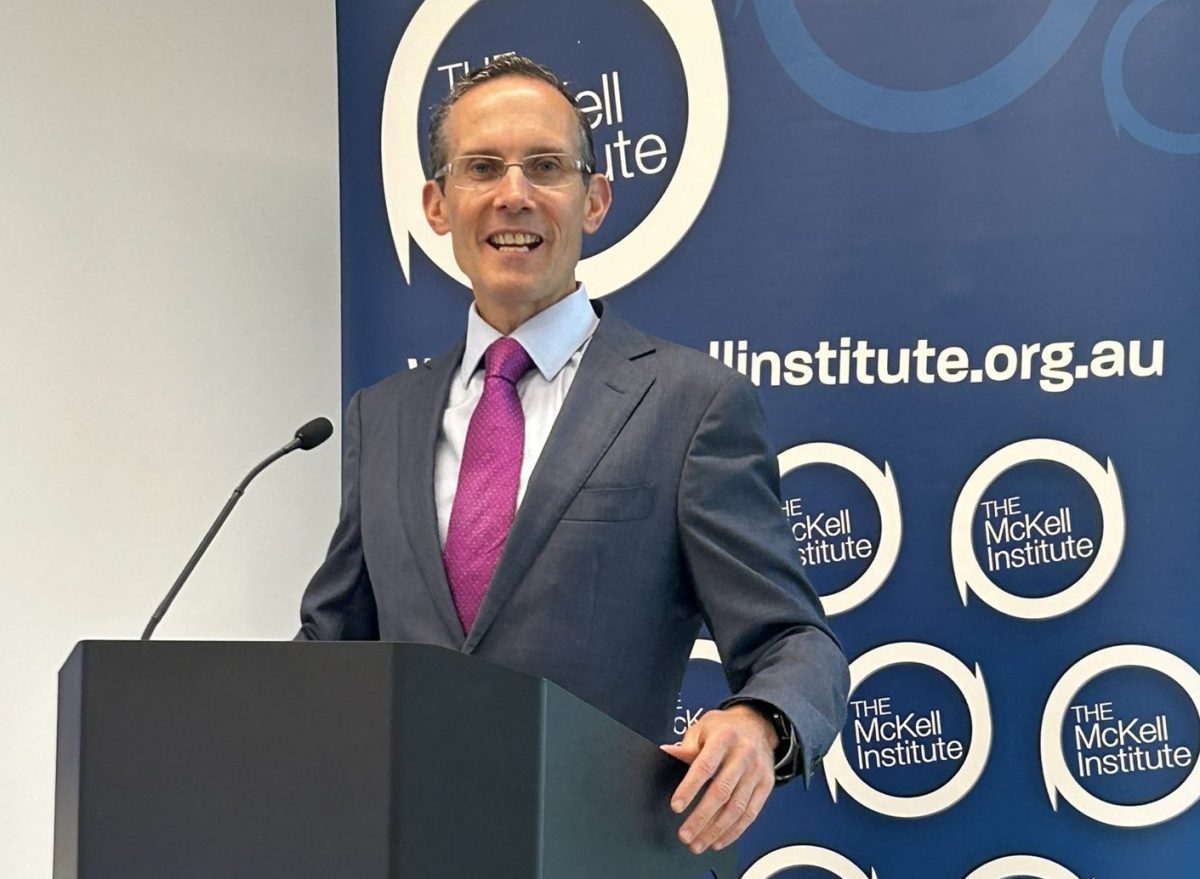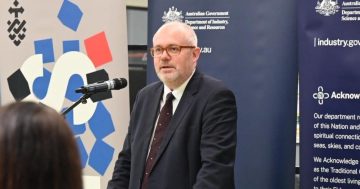
Assistant Minister Andrew Leigh says investing in people is at the heart of progressive productivity. Photo: File, McKell Institute.
Lifting the nation’s productivity requires investment in individuals, infrastructure and institutions, according to the Federal Government’s Assistant Productivity Minister Andrew Leigh.
And the careful embracing of artificial intelligence will play a pivotal role.
Addressing the McKell Institute on Wednesday (25 June), Dr Leigh said such investment meant a focus on housing, institutions and digital technologies for what he described as a progressive productivity agenda.
Leaning on John Maynard Keynes’ 1930 essay imagining a productivity-driven future of rising living standards and abundant leisure, Dr Leigh shared ideas for improving job mobility, management quality, housing construction and public sector capability.
“Keynes and his wife Lydia Lopokova never had children, but I’m in the generation that would have been his great-grandchildren,” he said.
“Which means I’m also part of the generation he was writing about – the ones who, by 2030, would inherit a world shaped by rising productivity and the promise of abundance …
“That future hasn’t arrived. But the reason isn’t that productivity failed to grow. It’s that we made a different choice.
“His vision was not just of abundance, but of a civilisation freed from anxiety and toil.
“Australians have come far toward that vision. Since Keynes wrote, our living standards have multiplied. Our homes are larger, our health is better, our children are better educated.
“But in many ways, we’ve used the fruits of productivity not to work less, but to consume more. The economic problem has not vanished – it has changed form.
“And for some Australians, the future still feels precarious rather than plentiful.
“That’s why productivity matters. It is not just a number – it is the means by which we expand the realm of possibility.
“It is how we grow wages, reduce pressure and create space in our lives for what Aristotle called ‘the good life’ – for leisure, curiosity, companionship and care.”
The Assistant Minister referred to studies showing job growth was most rapid among firms which were early adopters of artificial intelligence.
He said the biggest employment risk from AI may not be job displacement, but rather working for a business that didn’t adopt it.
“The equivalent of working for a boss who insists that the fax machine will make a comeback,” Dr Leigh said.
“This means that AI regulation should follow a principles-based approach. Start by applying existing laws. Where those fall short, make technologically neutral amendments.
“Only if these approaches are insufficient should AI-specific rules be considered.
“The goal is to protect the public while allowing productivity-boosting AI innovation to flourish.”
Declaring productivity to be the engine room of living standards, Dr Leigh said it wouldn’t rise by accident or through “mindless cutting”.
“It rises when we invest – in people, in systems and in the institutions that turn ambition into action,” he said.
“That’s the vision behind the progressive productivity agenda. An agenda that recognises we need productivity to fund our ambitions – and progressive choices to sustain productivity.
“That fairness and dynamism go hand in hand. And that the best kind of growth is the kind that expands what Australians can do with their lives.”
Housing will form a big part of the government’s investment in infrastructure, but so too will roads, rail, wires and pipes.
But at its core, Dr Leigh said, infrastructure was all about capability.
“It’s what allows people to connect to opportunity, firms to operate efficiently and systems to scale,” he said.
“The progressive productivity agenda doesn’t just ask what we build – it asks how well we build, how quickly we deliver and whether the systems we rely on are fit for purpose.”
Productivity also depends on less visible forms of infrastructure such as broadband networks and data systems, being essential for adopting general-purpose technologies like AI.
Investment in institutions was just as important, he said.
“Institutions are not abstract. They are the systems that determine whether policy gets delivered – whether ambition becomes action.”
Above all, a more productive Australia begins with its people.
“Productivity is not an abstraction. It’s the sum of what individuals can contribute, adapt to, and create,” Dr Leigh said.
“That’s why investing in people is at the heart of this government’s economic strategy: investing in their skills, their health and their opportunities.
“These are not trade-offs. They are long-term investments in economic growth.”
Original Article published by Chris Johnson on Region Canberra.








